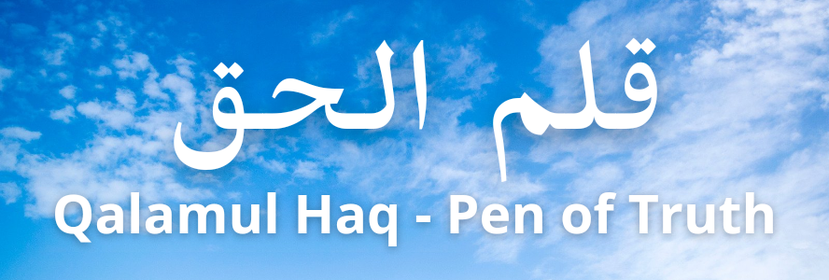- Details
- Hits: 883
PROBLEMS WITH REFERRINGTO QURAN AND HADITH DIRECTLY PART 1
If one who is not a mujtahid, refers to the Qur’an and Hadith directly in order to extract shar’ee laws and find solutions to his problems, he will land himself in clear disaster and encounter many difficulties. It is akin to an ignorant layman trying to find a solution to legal or medical issues by directly referring to the sources. He is bound to misunderstand many fundamental issues and bring great disaster upon himself. Let us examine some of the problems he will encounter:
THE FIRST PROBLEM
The first problem is that some people will begin to consider themselves as mujtahids. They will refer to translations of the Qur’aan and the books of Hadith (such as the translations of Saheeh Bukhaari, Saheeh Muslim, etc,). Subsequently, they will arrive at their own incorrect conclusions. This is undoubtedly detrimental not only to their own Deen, but also equally destructive to the Deen of the general public. Nabi (Sallallahu Alayhi Wasallam) foretold the coming of such crucial times where people will confine the truth to their own logic and they will shun all emulation of the pious predecessors. Hence, he is reported to have said that from amongst the signs of Qiyaamah:
إذا رأيت شحا مطاعا وهوى متبعا ودنيا مؤثرة وإعجاب كل ذي رأي برأيه
You will witness people fulfilling their greed, following their base desires, giving preference to dunya over deen and being satisfied with their own reasoning and understanding. (Mishkaat Pg. 437)
واعجاب المرء بنفسه وهي أشدهن
A person will be satisfied and pleased with his independent reasoning and understanding. (Mishkaat Pg. 434)
Nabi (Sallallahu Alayhi Wasallam) has also mentioned that from amongst the signs of Qiyaamah is:
ولعن آخر هذه الأمة أولها
The latter of this ummat will curse the former. (Mishkaat Pg. 470)
Consider the following two incidents which reveal the outcome of the one who is not a mujtahid but, refers directly to the Qur’an and Hadith. The following two incidents are narrated by Allamah Kowthari (Rahimahullah). He says:
“A person was accustomed to performing Salaat-ul-Witr after making istinja (cleaning himself after urinating). When asked about it, he quoted the Hadith:
من استجمر فليوتر
He who uses mud pebbles for istinja should “perform witr” (Mishkaat Pg. 42)
Since the same verb فليوتر which is used for Salaat-ul-Witr is also used for ‘doing something in an odd number’, the person misunderstood this Hadith to be referring to witr Salaah. The correct meaning of this Hadith is that, he who uses mud pebbles for istinja, should use an odd number.
Another person declared that it was forbidden to water one’s neighbour’s garden. He substantiated it by quoting the following Hadith:
لا يحل لامرئ يؤمن بالله واليوم الآخر أن يسقي ماءه زرع غيره
It is not permitted for one who believes in Allah and the last day to irrigate someone else’s crop with his own water. (Mishkaat Pg. 290)
The Hadith actually implies that, if someone acquired a pregnant slave woman (when slavery was still in practise), then he is prohibited from copulating with her until she gives birth.
TO BE CONTINUED INSHA ALLAH











